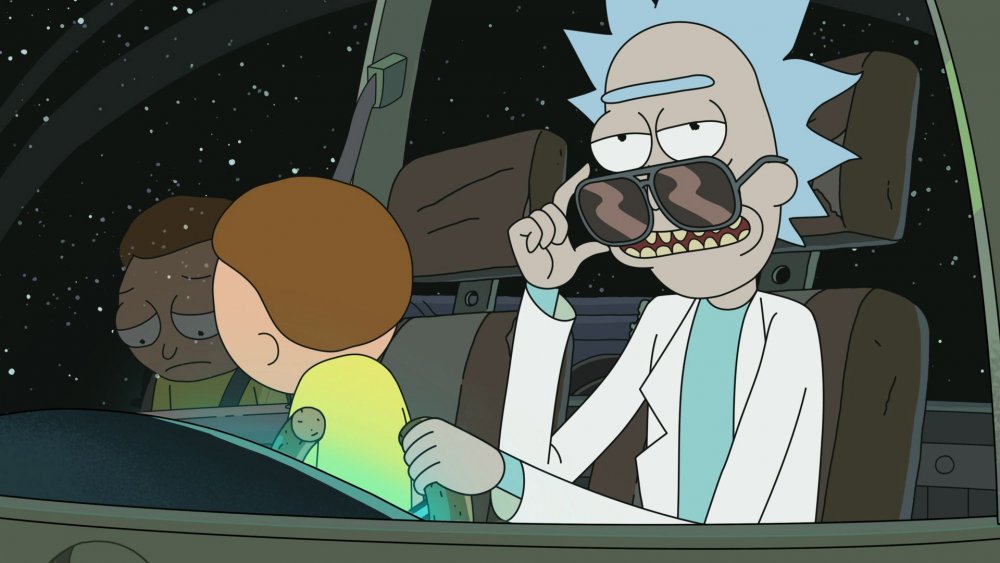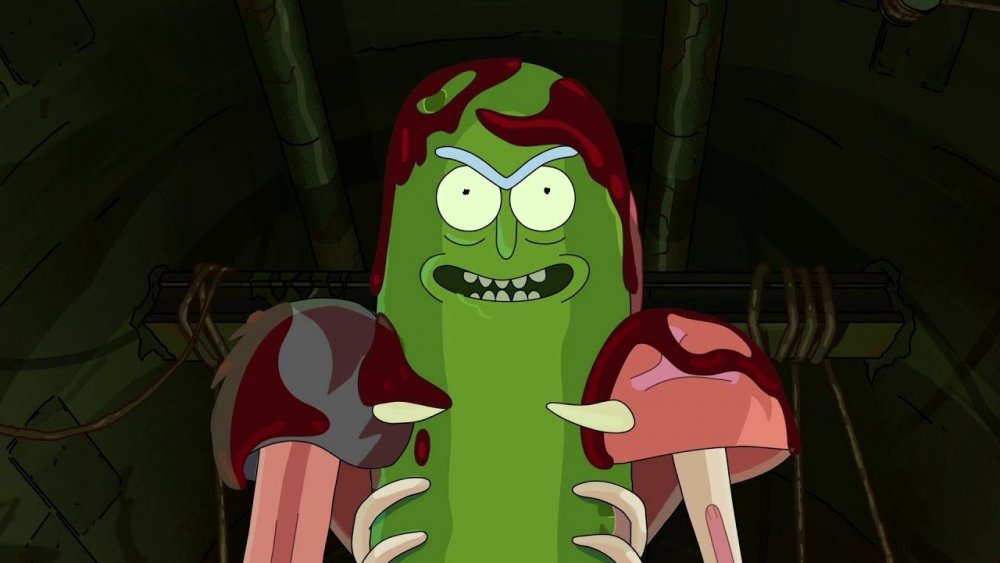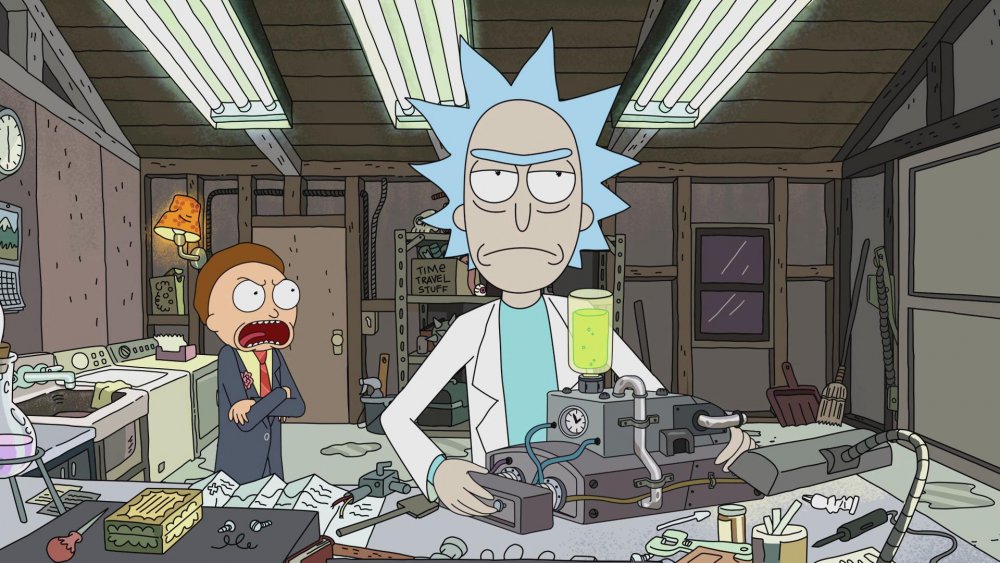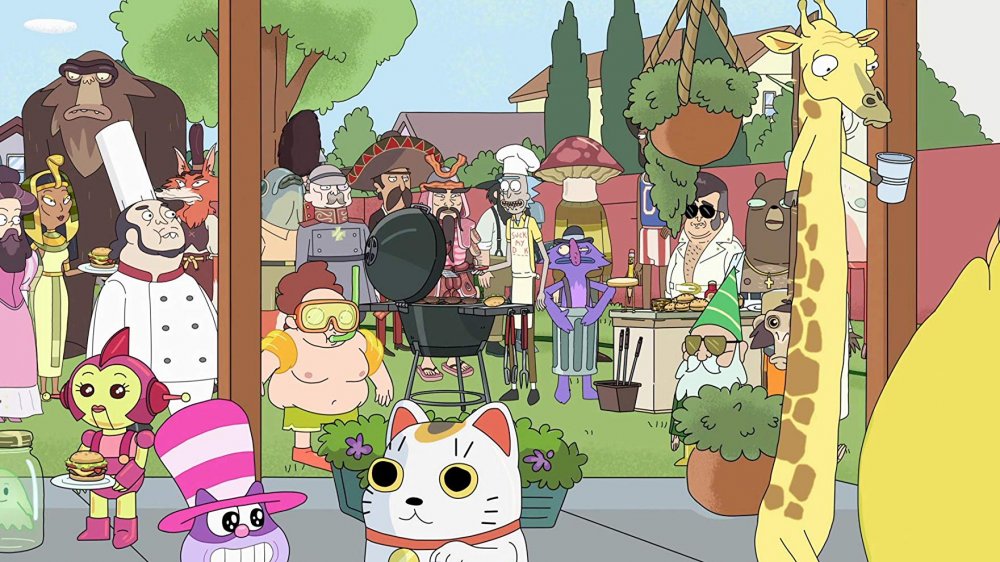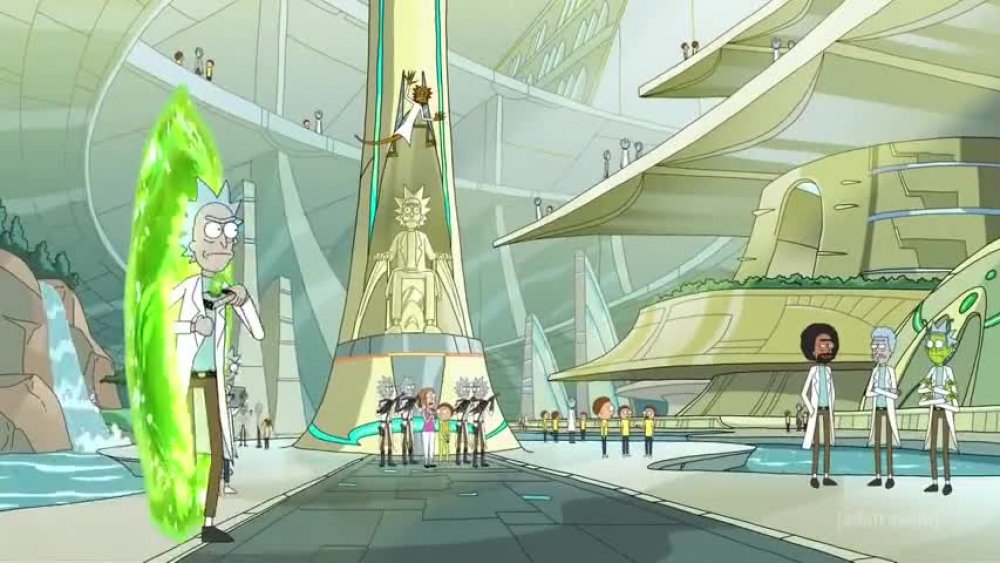The Science That Rick And Morty Actually Gets Right
It turns out Rick Sanchez may actually be the smartest man in the universe.
According to an article in New Scientist, a lot of the high-concept sci-fi hijinks portrayed on Adult Swim's Rick and Morty are actually more sci than fi. As all conscience-bearing fans of the show will tell you, that fact should be about as upsetting as it is fascinating. Upsetting, because Rick's entire career as a scientist has been an ethically unbound journey to the planet amorality. If even a fraction of Rick's science is actually possible, we all need to be keeping a much closer eye on the scientific community.
Here's just a taste of what we're talking about: Rick put his consciousness inside a teenage body and conquered the local high school's social strata. He regularly uses his brainalyzer to edit his grandson's memory. He turned himself into a pickle to get out of family therapy. He made his 10-year-old daughter fake fingerprints, fall-asleep darts and a sentient switchblade. He literally ruined an entire universe, packed his bags and moved to an adjacent reality; you get the point. So, which of Rick's horrifying inventions, exactly, utilize actual science? The world must know.
Locomotion by cockroach nerve stimulation
On the season 3 Rick and Morty episode "Pickle Rick," Rick is faced with a potential catastrophe of his own making. In an overly elaborate attempt to avoid family therapy, he transforms himself into a sentient but limbless pickle. His devious plan to revert to human form via anti-pickle serum is foiled when Beth snatches away the syringe dangling over Rick's helpless pickle body. What ensues is a gore-filled romp through the neighborhood sewer system, during which Rick assembles an artificial body for himself out of cockroach parts that he controls by pressing clumps of cockroach brain with his tongue. Sounds outrageous, right? Also, super possible.
As reported by New Scientist, researchers have actually discovered a region of the cockroach's central nervous system that can be stimulated to produce locomotion in the limbs. Scientists have been utilizing this discovery in robotics to help guide autonomous movement. The cockroach CNS is more like a bundle of nerves than an actual brain, but the depiction in this fan favorite episode is more right than wrong. Interesting, and gross.
Love is just chemistry
On the season 1 episode "Rick Potion #9," Rick concocts a love potion so that Morty can make his crush Jessica fall in love with him. Instead of sitting down for a grandfatherly discussion of the birds and the bees, Rick explains love to Morty in the most Rick way possible: a dark, cynical rant about biochemistry peppered with casual insults. He tells Morty that this "love" he thinks he feels for Jessica is just a "series of chemical reactions in the body." He proves it to him by engineering and bottling the emotion. Rick's potion seems to do the trick, until it blends with a common flu virus, mutates, and becomes contagious. The school dance ends with a swarm of lovestruck zombies fighting each other to the death for Morty's affection.
Cynical though it may be, science tells us that Rick is probably onto something about the nature of love. According to Psychology Today, many of the feelings we associate with love are actually derived from a neurochemical chain of events that evolution created to help us select an ideal mate. It all begins with oxytocin, the so-called cuddle hormone. Oxytocin is released upon physical contact with a potential mate, and it facilitates psychological bonding. Due to the chemical nature of love, some scientists actually believe they may eventually be able to bottle affection. Let's just hope it doesn't go pandemic.
Parasitic mind control
On the season 2 episode "Total Rickall," the Smith household becomes infected with alien parasites that cause them to hallucinate a cast of zany characters complete with convincing false memories of these characters, making it nearly impossible to tell reality from parasitic fantasy. No, we have not yet discovered any parasites that can make you believe you've spent your entire life in the company of Reverse Giraffe, Hamurai, Pencilvester, Ghost-in-a-Jar, and your wife's boyfriend Sleepy Gary. The notion of mind-controlling parasites, though, is rooted in actual biology.
As New Science points out, the fungus Ophiocordyceps unilateralis invades the central nervous system of carpenter ants, forcing them to climb toward the forest canopy and die in a location advantageous to the fungus. After killing its host, O. unilateralis bursts forth Alien-style from the host body's skull in the form of a gnarly mushroom (yikes). If you're looking for something a little closer to home, the parasite Toxoplasma gondii, found in cat feces, can infect humans — causing "Cat Lady Syndrome," a set of schizophrenic symptoms that supposedly cause the infected person to obsess over the health and comfort of their feline companions.
We may be living in a multiverse
The entire premise of Rick and Morty is predicated on the existence of an infinite set of alternate realities that Rick can travel through at will by the grace of his portal gun. Hunger Games universe, Cronenberg universe, a universe populated entirely by fascist shrimp; all of these realities exist within the infinite multiverse, which is an actual prediction of quantum theory.
According to Smithsonian Mag, a concept called the "inflationary multiverse" is picking up steam in scientific circles. The concept goes like this: as the period known as cosmic inflation stalled in our universe, it continued outside the bounds of our universe, leaving other parallel pocket universes in its wake. If this "eternal inflation" proves to be a feature of our reality, then a multiverse would be inevitable.
Physicists haven't yet proven that the multiverse exists, but it is one of the most enduring and fascinating predictions of some of our most interesting scientific theories. Now, to get to work on that portal fluid so we can all go travel to the universe where McDonald's never got rid of its szechuan nugget sauce.
